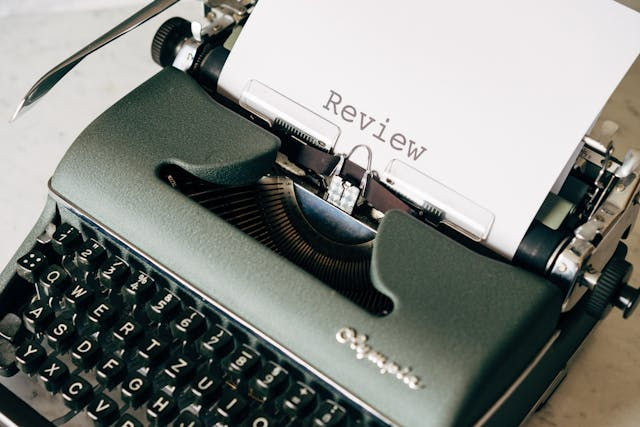The authenticity paradox : why we trust flawed reviews more than perfect ones
- jessevisionfactory
- Aug 26, 2025
- 4 min read
The flawless lie
Just a small question to start. You read a five- star review that describes a product : “the best ever , nothing to say , buy it”.
What do you think? You probably let out a sarcastic sigh and scroll to look for a review that seems more truthful.
But why does a review that is too positive not seem real to us ?
This is called the paradox of authenticity : the more something looks good , or the more positive a review is , the more it looks fake and completely loses credibility .
We have become so suspicious of perfection that we naturally look for imperfections.
But what does this mean for brands? To capture consumer trust you also have to be ready to embrace your flaws because authenticity trumps perfection,every single time.
The psychology of the imperfect human
How come we are obsessed with flaws? Should we not seek perfection ? No, because instinctively we are programmed to believe what seems real, not good.

This is what explains the psychological sweet spot: perfect reviews look like hidden ads (and also badly hidden), while a review that points out some flaws reminds you of the advice of a good friend who tells you the truth , because he has nothing to lose.
Whoever wrote the review is not directly interested in the profit made if you choose that product, he is completely disinterested and therefore completely credible .
In the end it's that simple: we humans are the definition of imperfection, in who we are and in everything we do and recognizing this imperfection even in what surrounds us allows us to empathize with the experience of other people and eventually to believe it.
The power of the 4-star review
Let's be honest : none of us believe the friend who says he has a perfect life or the picture of that influencer's crystal clear house. We know there is a lie, something hidden, we just don't know exactly what . It is this uncertainty that makes 5- star reviews lose credibility and trust.
Several studies have shown how 4-star reviews have much more value : they are proof of authenticity not an admission of weakness.
When we have to buy a product , go to a place or access a service we don't care about compliments for their own sake . Comments like “great” or “perfect” , tell us nothing, they are useless .
Here , this is exactly what we are all looking for: usefulness . Reviews such as “comfortable shoes but they clean with difficulty” or “good food but it is better to book because there is always a long line” , give us much more practical information with much more value than dozens of empty compliments .
This is exactly the difference between being liked and being truly believed .
Embracing the negative
Is it possible to leverage negative reviews to the brand's advantage?
Certainly, all it takes is a few small steps. A negative review is not a disaster, it's an opportunity to learn about the shortcomings of your product or service and be able to improve it for future consumers. Responding to comments by denying flaws or problems only drives away potential future customers: their needs and experience must be put first , valued and respected .
It is critical that criticism does not go unanswered: you miss an opportunity, not to justify yourself but to apologize and propose a solution . When we read a genuine empathetic response we understand that the goal is not just to sell, but to provide a satisfactory experience or product.
At the end of the day by pretending to be perfect we end up looking a little desperate…and honesty, unlike problems, does not need to be denied.

The brands that actually get it
Now let's take a look at some practical examples of how the recovery paradox works: it occurs when a customer who is initially dissatisfied after a positive response to his complaints becomes even more loyal and satisfied with the entire company than he would have been if the error or problem had not been there.
Take Zappos for example, after a customer's complaint about a late order in addition to a full refund sent a bouquet of flowers as an apology. Such a simple gesture has assured the trust of that client forever.
You can also think about Southwest airlines and the joking and spontaneous announcements of the crew when there are delays : passengers burst into big laughs because they feel like people first .
Companies like these have realized that it is not the problem that defines their brand but their response .
Are you listening?
That said, the question is simple: is your brand listening ?
For years the marketing scenario has been clear: present yourself to the world as the most perfect , as the best choice. We all fell for it, but now things are different .
We all know that no product or service is completely perfect , the question is not whether you can get a perfect score, but what you do when you don't.
The new goal is not to sell a story, but to live it,warts and all.
So, be honest, are you really listening to what customers have to say or are you still just hearing the praise you want to hear?




Comments